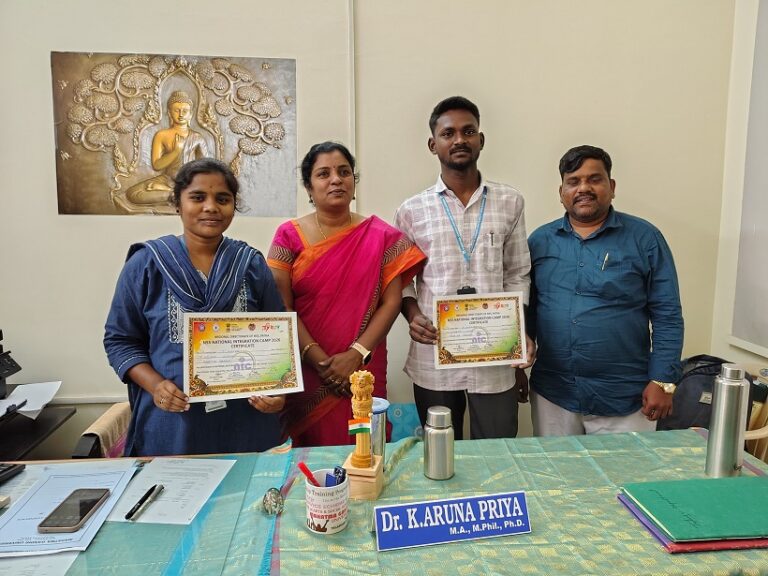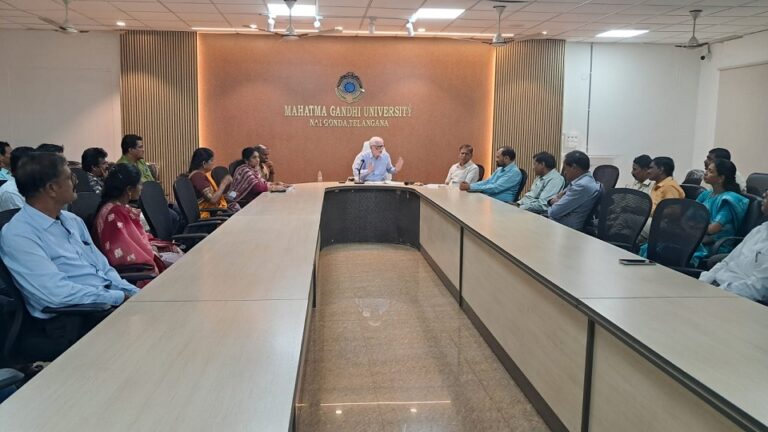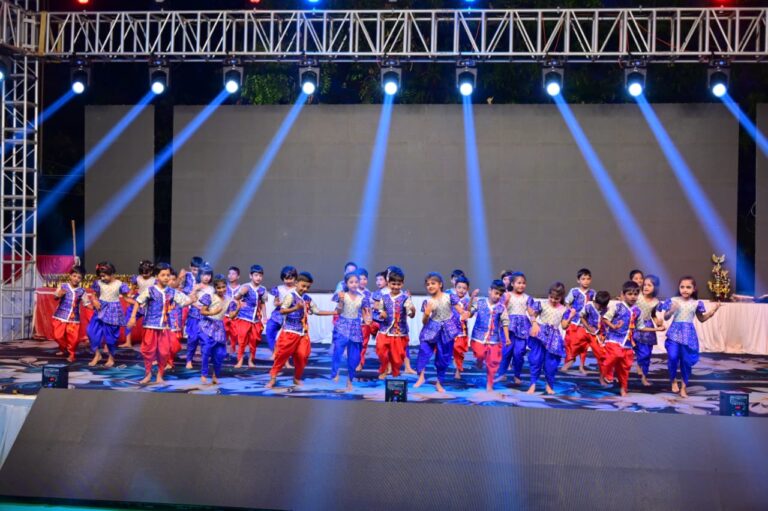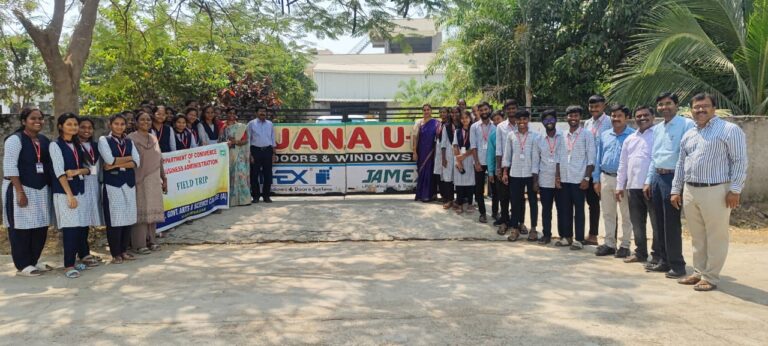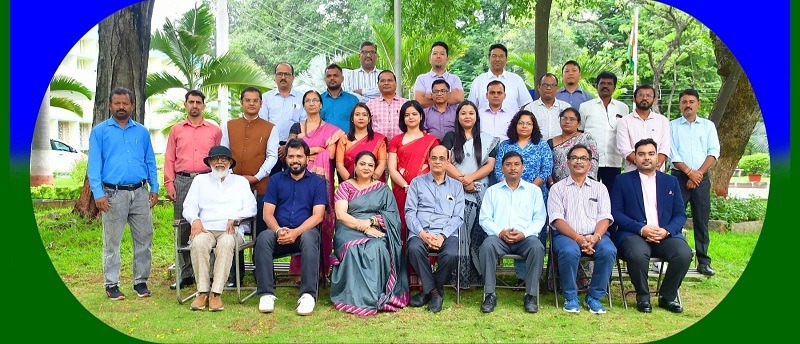
HYDERABAD, SEPTEMBER 23, 2025: The Department of Land Resources (DoLR), Ministry of Rural Development, Government of India, in collaboration with the National Institute of Rural Development and Panchayati Raj (NIRDPR), is hosting a two-day ‘National writeshop on the Effective Use of Social Media and Documentation of Best Practices in Watershed Programmes’ on the Institute’s Hyderabad campus from September 23-24, 2025.
The writeshop was inaugurated with the keynote address delivered by Prof. DVR Murthy, Vice Chancellor of Andhra Kesari University, Ongole, Andhra Pradesh. He deliberated on the involvement of the community to manage and own the assets created by the watershed programs.
The main objective of PMKSKY 2.0 is to reduce poverty and create both farm and non-farm livelihoods; hence, communication perspectives will differ at different stages and phases of the watershed programs. For each phase, the communication aspects which depend on the needs of the target audience, and the use of social media to leverage the benefits of the watershed program, are the need of the hour. Hence, this writeshop aims to share creative and technical know-how to use social media.
NIRDPR faculty Suresh Babu, Krishna Lohi Das and Vanishree Joseph were also part of the inaugural session. The initiative comes under the Watershed Development Component of the Pradhan Mantri Krishi Sinchayee Yojana (WDC-PMKSY 2.0), a flagship programme launched in 2021 to promote sustainable management of natural resources in rainfed and degraded areas. With a target of covering nearly 50 lakh hectares by 2026, WDC-PMKSY 2.0 is playing a pivotal role in enhancing water availability, improving soil health, and creating sustainable rural livelihoods.
The writeshop aims to bridge the gap between field-level innovations and effective communication. Many watershed initiatives across India have produced inspiring community-led solutions and innovative practices, yet these often remain undocumented and confined to local contexts. By equipping watershed professionals and community-based organisations with the skills to capture and share these stories, the programme hopes to ensure wider recognition, replication, and scaling of successful models.
Over the two days, participants will explore how social media platforms and digital storytelling can amplify grassroots innovations. They will also work together to design a comprehensive training module on documentation and social media use for watershed projects. This module will serve as a guide for field-level staff, NGOs, and technical experts, providing practical knowledge on documenting case studies, creating visual stories, and running social media campaigns that resonate with communities and policymakers alike.
By the end of the writeshop, a draft five-day training curriculum will be developed, combining theory, demonstrations, and hands-on exercises. Participants will also prepare ready-to-use templates for case studies, photo stories, and videos, along with a curated toolkit of digital and AI-based tools relevant to watershed documentation. A model social media campaign, specifically tailored to watershed-related themes, will also emerge from the discussions.
The event will bring together a diverse group of participants, including officials from rural development, agriculture, and soil and water conservation departments, representatives of watershed committees and panchayati raj institutions, as well as NGOs, state-level nodal agencies, development communicators, documentary filmmakers, and social media professionals.
Dr Akanksha Shukla, Associate Professor, CPGS&DE at NIRDPR, who is coordinating the writeshop, said the programme is an important step toward giving grassroots voices a platform. “Effective documentation is not just about recording achievements—it is about motivating communities, creating transparency, and influencing policy through powerful storytelling. This write shop will help ensure that the extraordinary efforts of rural communities are recognised and shared far beyond their local boundaries,” she noted.
By highlighting grassroots evidence through modern communication tools, the writeshop is expected to reshape how watershed programmes are documented and showcased, ultimately contributing to stronger policies, better replication of practices, and more resilient rural communities.
Contact for Inquiries:
Dr Akanksha Shukla
Associate Professor, CPGS&DE
National Institute of Rural Development & Panchayati Raj (NIRDPR)
Rajendranagar, Hyderabad – 500030
akanksha.nird@gov.in


